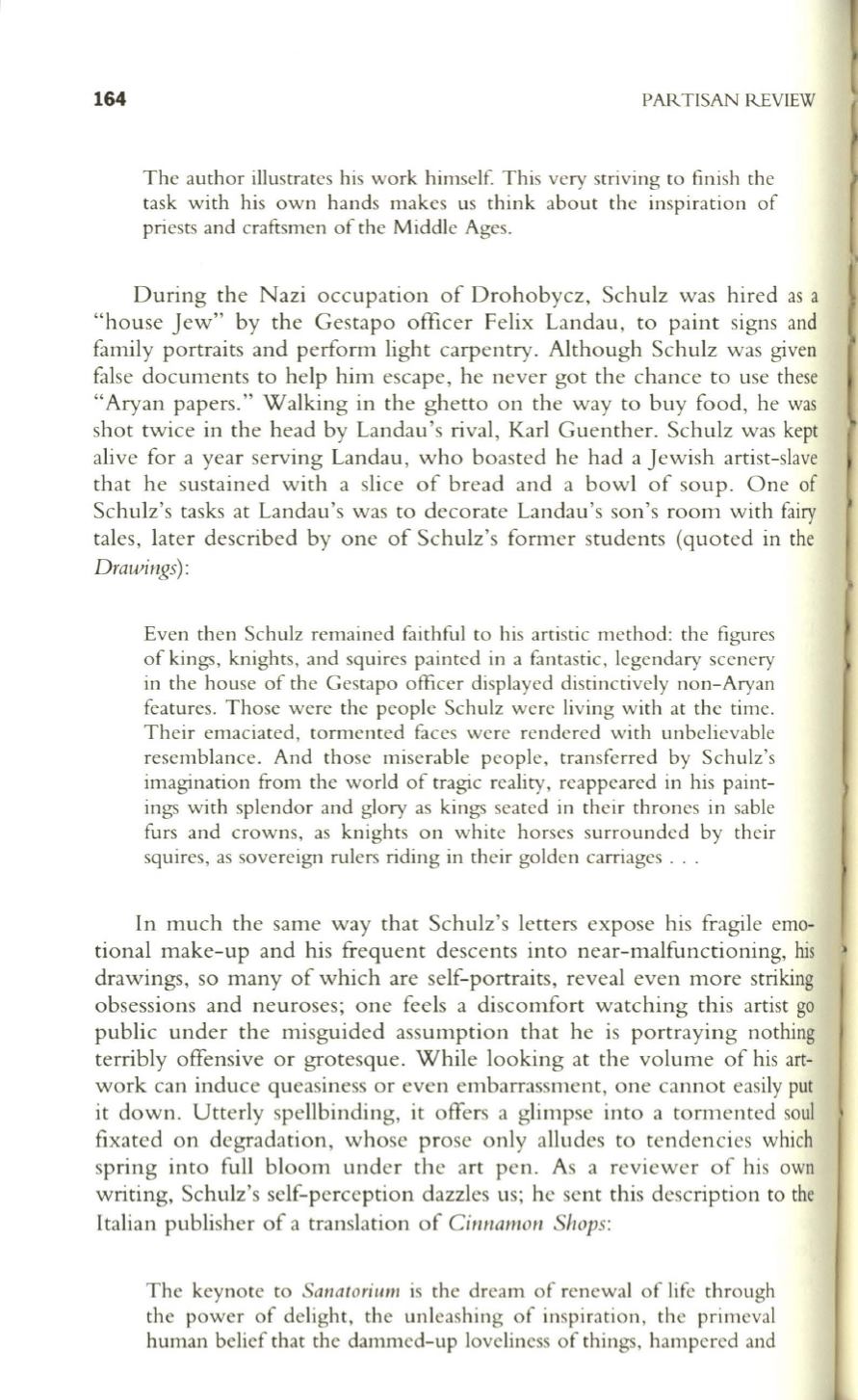
164
PARTISAN REVIEW
The author illustrates his work himself. This very striving to finish the
task with his own hands makes us think about the inspiration of
priests and craftsmen of the Middle Ages.
During the Nazi occupation of Drohobycz, Schulz was hired as a
"house Jew" by the Gestapo officer Felix Landau,
to
paint signs and
family portraits and perform light carpentry. Although Schulz was given
false documents to help him escape, he never got the chance to use these
"Aryan papers." Walking in the ghetto on the way to buy food, he
was
shot twice in the head by Landau's rival, Karl Guenther. Schulz was kept
alive for a year serving Landau, who boasted he had a Jewish artist-slave
that he sustained with a slice of bread and a bowl of soup. One of
Schulz's tasks at Landau's was
to
decorate Landau's son's room with fairy
tales, later described by one of Schulz's former students (quoted in the
Drawings):
Even then Schulz remained faithful to his artistic method: the figures
of kings, knights, and squires painted in a fantastic, legendary scenery
in the house of the Gestapo officer displayed distinctively non-Aryan
features. Those were the people Schulz were living with at the time.
Their emaciated, tormented faces were rendered with unbelievable
resemblance. And those miserable people, transferred by Schulz's
imagination from the world of tragic reality, reappeared in his paint–
ings with splendor and glory as kings seated in their thrones in sable
furs and crowns, as knights on white horses surrounded by their
squires, as sovereign rulers riding in their golden carriages.
In
much the same way that Schulz's letters expose his fragile emo–
tional make-up and his frequent descents into near-malfunctioning, his
drawings, so many of which are self-portraits, reveal even more striking
obsessions and neuroses; one feels a discomfort watching this artist go
public under the misguided assumption that he is portraying nothing
terribly offensive or grotesque. While looking at the volume of his
art–
work can induce queasiness or even embarrassment, one cannot easily put
it down. Utterly spellbinding, it offers a glimpse into a tormented soul
fixated on degradation, whose prose only alludes to tendencies which
spring into full bloom under the art pen. As a reviewer of his own
writing, Schulz's self-perception dazzles us; he sent this description to the
Italian publisher of a translation of
Cinnamon Shops:
The keynote to
Sanatorium
is the dream of renewal of life through
the power of delight, the unleashing of inspiration, the primeval
human belief that the dammed-up loveliness of things, hampered and


